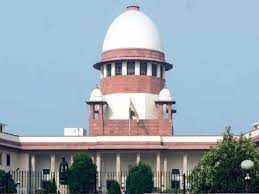

By Sunil Garodia
First publised on 2023-04-07 05:42:43
The Supreme Court has rightly quashed a Madhya Pradesh HC order that issued a notice to the trial court judge to explain why he had granted bail to a person accused of stripping a man and tying him to a tree before assaulting him. The court said that the trial judge was correct in granting bail as the accused had been in jail for 4 months, the charge sheet had been filed and other accused had been granted bail. The Supreme Court said that "the order of the trial court granting bail to the accused was fair and reasonable. The high court cancelled the bail applying wrong principles of law".
The court was of the opinion that constitutional courts asking for explanation from lower courts for their orders would have a "chilling effect" on the lower judiciary. The bench of CJI D Y Chandrachud and Justice J B Padriwala said that if HC judges sought explanations from district judicial officers it will have an adverse effect of the independence of the district judiciary.
Every judge is entitled to have his or her own interpretation of law. That is why we have a hierarchical judiciary and dissenting judgements in constitutional courts. If a trial court judge interprets the law in a manner that is found wrong by the High Court, it can reverse the judgment but should not seek an explanation from the trial court. In the instant case, even the Supreme Court reversed the high court judgment saying wrong principles of law were applied but it did not seek an explanation from the judge as to why he did it.
The Supreme Court rightly said that the High Court's "decision to seek explanation from the trial court was unwarranted. Such orders from the HC produce a chilling effect on the district judicial officer. They cannot be put in fear of giving explanation to high courts while exercising their powers and discretion to grant bail in criminal cases to accused." Constitutional courts should respect the mandate granted to trial courts and should refrain from acting as school masters.











